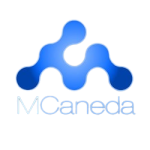Introduction
In a rapidly evolving digital landscape, enterprises seek content management systems (CMS) that offer flexibility, scalability, and security. Drupal continues to be a popular choice among large organizations in 2025 due to its robust features, open-source foundation, and ability to adapt to complex business requirements. This article explores why big companies continue to rely on Drupal and how it remains a cornerstone of enterprise-level web solutions.
Why Enterprises Choose Drupal in 2025
1. Scalability for Large Websites
One of the key reasons big companies choose Drupal is its ability to handle large-scale websites with millions of pages and high traffic volumes.
Scalability Features:
- Efficient content caching using tools like Varnish and Redis.
- Support for multi-site setups.
- Load balancing and CDN integrations.
| Feature | Description | Benefit |
|---|---|---|
| Multi-Site Support | Manage multiple sites from a single Drupal installation | Reduces maintenance efforts |
| Varnish Integration | Caches content to improve site performance | Faster page load times |
| Load Balancing | Distributes traffic across multiple servers | Ensures high availability |
2. Security and Compliance
Security is a top concern for enterprises. Drupal’s security team ensures that the platform remains secure and up-to-date.
Key Security Features:
- Role-based access control to limit user permissions.
- Two-factor authentication (2FA) for secure logins.
- Regular security updates and patches.
Pro Tip: Use Drupal’s Security Kit module to enhance your site’s protection against common vulnerabilities.
3. Customizability and Flexibility
Drupal is known for its modular architecture, which allows enterprises to build custom solutions tailored to their needs.
Custom Solutions Include:
- E-commerce platforms.
- Intranet portals.
- Customer relationship management (CRM) systems.
4. Multilingual and Global Reach
For enterprises operating in multiple countries, Drupal’s multilingual support is essential.
Multilingual Features:
- Core multilingual modules for content translation.
- Right-to-left (RTL) language support.
- Localized content management.
5. Open-Source Community and Innovation
Drupal’s open-source community ensures continuous improvement and innovation.
Community Contributions:
- Thousands of contributed modules to extend functionality.
- Regular updates and new features from the community.
- Active forums for support and collaboration.
Enterprise Use Cases of Drupal
1. Government Websites
Governments across the globe use Drupal for its security and scalability.
Example:
The Government of Australia and NASA use Drupal to manage their digital platforms.
2. Higher Education Institutions
Universities and colleges rely on Drupal to manage student portals, course catalogs, and research content.
3. E-Commerce Platforms
Large e-commerce sites use Drupal to offer personalized shopping experiences.
4. Media and Publishing Companies
Media organizations use Drupal to manage high-traffic content and multi-channel publishing.
Popular Modules for Enterprise Drupal Sites
| Module | Description |
| Security Kit | Enhances site security |
| Paragraphs | Allows flexible content structuring |
| Group | Manages user roles and permissions |
| Metatag | Improves SEO |
| Workflow | Manages content approval processes |
Key Takeaways
- Drupal offers scalability, security, and customizability, making it ideal for enterprise-level solutions.
- Enterprises benefit from multilingual support and modular architecture.
- Popular use cases include government websites, higher education institutions, and media companies.
FAQ
1. Why do enterprises choose Drupal over other CMS platforms?
Enterprises choose Drupal for its scalability, security features, and flexibility to create custom solutions.
2. Is Drupal suitable for large-scale websites?
Yes, Drupal can handle millions of pages and high traffic volumes, making it perfect for large-scale websites.
3. What industries commonly use Drupal?
Industries such as government, higher education, media, and e-commerce commonly use Drupal.
4. How secure is Drupal for enterprise use?
Drupal offers role-based access control, 2FA, and regular security updates, ensuring top-notch security.
5. Can Drupal support multilingual websites?
Yes, Drupal has core multilingual modules to manage content in multiple languages.
Conclusion
In 2025, Drupal remains a top choice for enterprises looking for a scalable, secure, and flexible CMS solution. Its modular architecture, multilingual capabilities, and open-source innovation make it an ideal platform for managing large-scale websites and global digital experiences. For big companies, Drupal offers the tools and features needed to meet the demands of the modern digital world.


